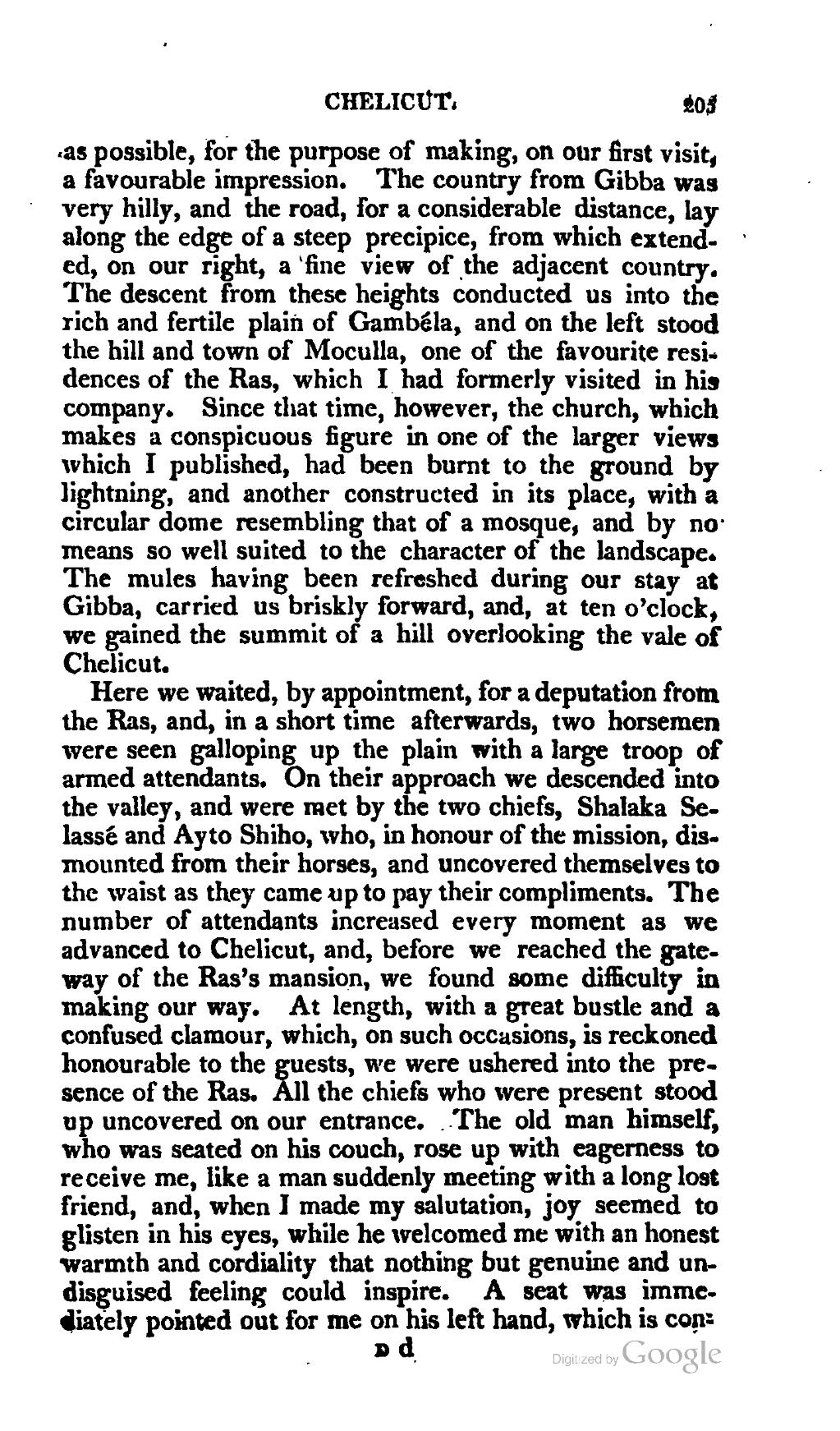as possible, for the purpose of making, on our first visit, a favourable impression. The country from Gibba was very hilly, and the road, for a considerable distance, lay along the edge of a steep precipice, from which extended, on our right, a fine view of the adjacent country. The descent from these heights conducted us into the rich and fertile plain of Gambéla, and on the left stood the hill and town of Moculla, one of the favourite residences of the Ras, which I had formerly visited in his company. Since that time, however, the church, which makes a conspicuous figure in one of the larger views which I published, had been burnt to the ground by lightning, and another constructed in its place, with a circular dome resembling that of a mosque, and by no means so well suited to the character of the landscape. The mules having been refreshed during our stay at Gibba, carried us briskly forward, and, at ten o'clock, we gained the summit of a hill overlooking the vale of Chelicut.
Here we waited, by appointment, for a deputation from the Ras, and, in a short time afterwards, two horsemen were seen galloping up the plain with a large troop of armed attendants. On their approach we descended into the valley, and were met by the two chiefs, Shalaka Selassé and Ayto Shiho, who, in honour of the mission, dismounted from their horses, and uncovered themselves to the waist as they came up to pay their compliments. The number of attendants increased every moment as we advanced to Chelicut, and, before we reached the gateway of the Ras's mansion, we found some difficulty in making our way. At length, with a great bustle and a confused clamour, which, on such occasions, is reckoned honourable to the guests, we were ushered into the presence of the Ras. All the chiefs who were present stood up uncovered on our entrance. The old man himself, who was seated on his couch, rose up with eagerness to receive me, like a man suddenly meeting with a long lost friend, and, when I made my salutation, joy seemed to glisten in his eyes, while he welcomed me with an honest warmth and cordiality that nothing but genuine and undisguised feeling could inspire. A seat was immediately pointed out for me on his left hand, which is con-
